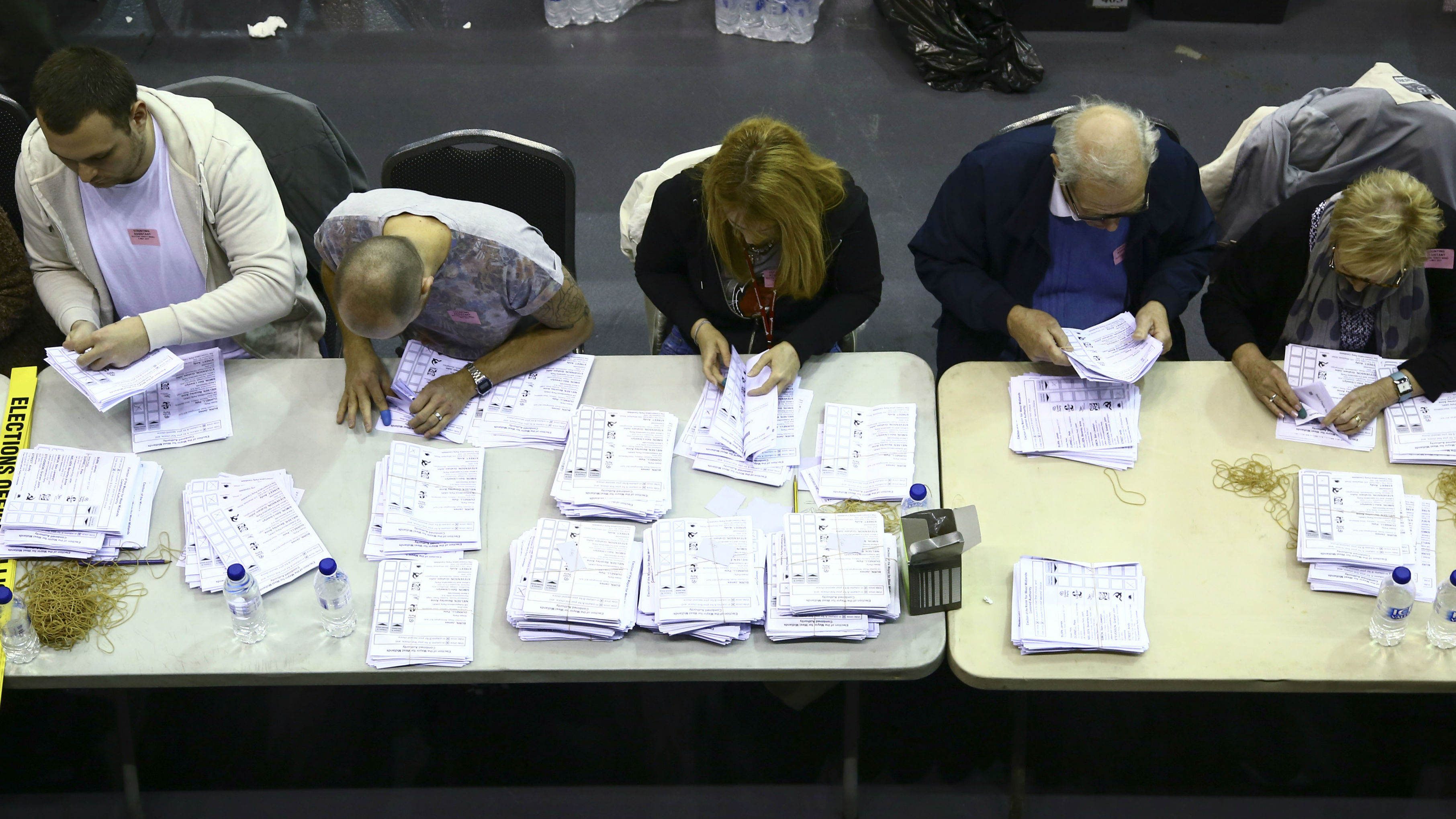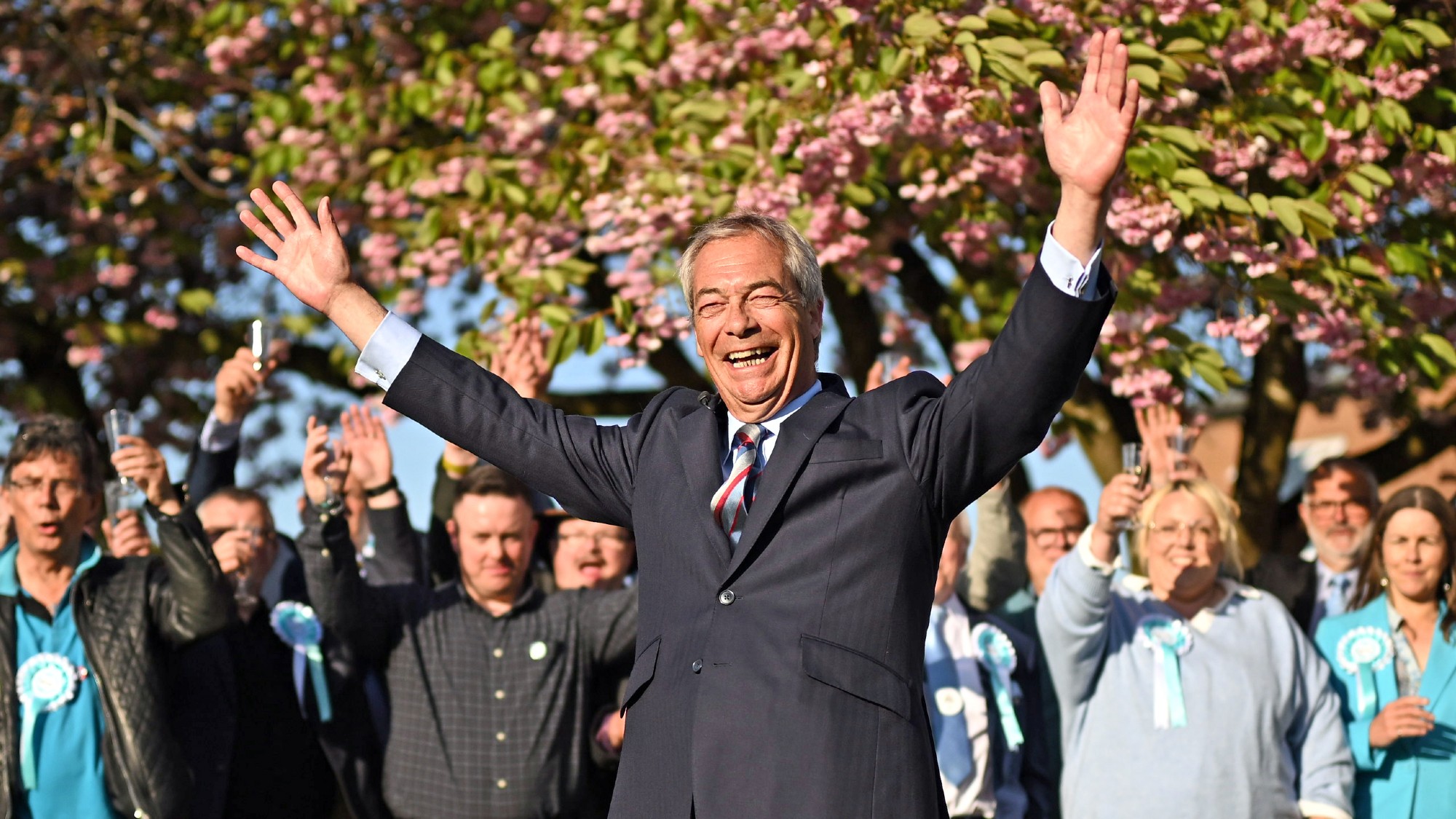Local elections 2017: What this could mean for the general election
Ukip's collapse could have 'significant impact' on next month's ballot, giving Theresa May cause to feel confident

A free daily email with the biggest news stories of the day – and the best features from TheWeek.com
You are now subscribed
Your newsletter sign-up was successful
"If Theresa May ever had any doubts about the wisdom of calling a snap general election," writes the Financial Times, "they will have been dispelled overnight."
As ballot papers in yesterday's council elections continue to be counted, it is clear the Conservatives have made big gains at the local level in a night that saw Labour take a bruising and Ukip unceremoniously swept out of power across their former heartlands.
Labour lost dozens of seats, including former strongholds in Wales and the north of England, while the Liberal Democrats' dream of an anti-Brexit surge fizzled out as the party's handful of gains were outnumbered by losses.
The Week
Escape your echo chamber. Get the facts behind the news, plus analysis from multiple perspectives.

Sign up for The Week's Free Newsletters
From our morning news briefing to a weekly Good News Newsletter, get the best of The Week delivered directly to your inbox.
From our morning news briefing to a weekly Good News Newsletter, get the best of The Week delivered directly to your inbox.
For The Guardian, the Conservatives' robust performance shows the party is "reaping the rewards" of its tough talk towards the EU, and can expect to replicate that success at the national level.
However, this strategy is not without its risk, the paper adds. Theresa May's "perceived shift to the right" leaves centrist Tory voters vulnerable to poaching from the left, especially if opposition parties are able to make headway with the much-discussed idea of a "progressive alliance".
Traditionally, the ruling party tends to underperform at local elections, but if the results published so far hold up across the country "this will be the third year in a row that the opposition party has made a net loss in council elections", says Sky News.
But even as ejected Labour councillors licked their wounds, it was a worse night for Ukip, who almost faced being wiped off the electoral map. Political scientist John Curtice told the BBC that the result meant Ukip have lost "everything they've been trying to defend".
A free daily email with the biggest news stories of the day – and the best features from TheWeek.com
Even those who have been instrumental in the party's rise seem to believe the game is up. One-time party leadership contender Steven Woolfe admitted he would now vote Conservative over Ukip, while a tweet from defector MP Douglas Carswell indicated his former party had served its purpose and it was now time to "go home".
At the 2015 general election, Ukip won 3.8 million votes, 12.6 per cent of the total, but Sky News' election analyst Michael Thrasher now predicts Ukip's share of the national vote could fall as low as three per cent on 8 June.
Even more importantly, the outcome of yesterday's vote shows that the voters Labour lost to Ukip are now flocking to the Tories rather than returning to Labour, a shift that could have a "significant impact" on the general election, Thrasher writes.
However, the temptation to extrapolate local election results to predict the outcome of the general election must be indulged with a pinch of salt.
According to a paper by former BBC head of political research David Cowling, which was unearthed by the Guardian, anywhere between 11 and 21 per cent of voters who participate in both local and general elections will vote for a different party in each.
-
 Political cartoons for February 16
Political cartoons for February 16Cartoons Monday’s political cartoons include President's Day, a valentine from the Epstein files, and more
-
 Regent Hong Kong: a tranquil haven with a prime waterfront spot
Regent Hong Kong: a tranquil haven with a prime waterfront spotThe Week Recommends The trendy hotel recently underwent an extensive two-year revamp
-
 The problem with diagnosing profound autism
The problem with diagnosing profound autismThe Explainer Experts are reconsidering the idea of autism as a spectrum, which could impact diagnoses and policy making for the condition
-
 How corrupt is the UK?
How corrupt is the UK?The Explainer Decline in standards ‘risks becoming a defining feature of our political culture’ as Britain falls to lowest ever score on global index
-
 The high street: Britain’s next political battleground?
The high street: Britain’s next political battleground?In the Spotlight Mass closure of shops and influx of organised crime are fuelling voter anger, and offer an opening for Reform UK
-
 Is a Reform-Tory pact becoming more likely?
Is a Reform-Tory pact becoming more likely?Today’s Big Question Nigel Farage’s party is ahead in the polls but still falls well short of a Commons majority, while Conservatives are still losing MPs to Reform
-
 Taking the low road: why the SNP is still standing strong
Taking the low road: why the SNP is still standing strongTalking Point Party is on track for a fifth consecutive victory in May’s Holyrood election, despite controversies and plummeting support
-
 What difference will the 'historic' UK-Germany treaty make?
What difference will the 'historic' UK-Germany treaty make?Today's Big Question Europe's two biggest economies sign first treaty since WWII, underscoring 'triangle alliance' with France amid growing Russian threat and US distance
-
 Is the G7 still relevant?
Is the G7 still relevant?Talking Point Donald Trump's early departure cast a shadow over this week's meeting of the world's major democracies
-
 Angela Rayner: Labour's next leader?
Angela Rayner: Labour's next leader?Today's Big Question A leaked memo has sparked speculation that the deputy PM is positioning herself as the left-of-centre alternative to Keir Starmer
-
 Reform UK's councillors are off to a rocky start
Reform UK's councillors are off to a rocky startIn the Spotlight Three weeks after sweeping the local elections, Nigel Farage's insurgent party is beginning to realise how hard the path from rhetoric to reality really is